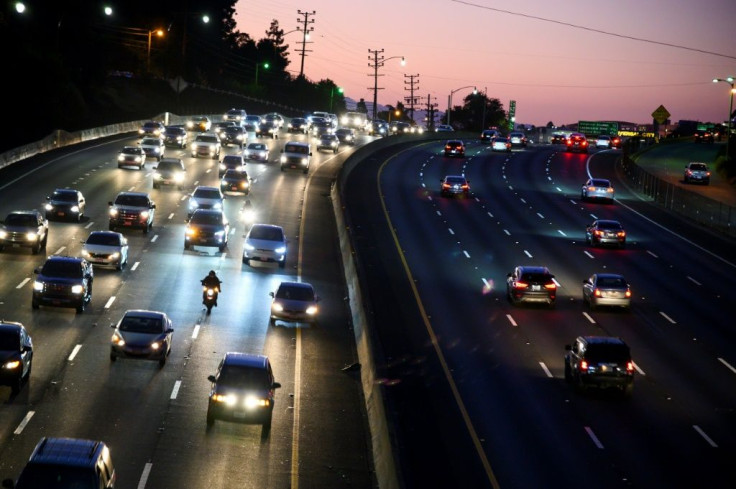California To Ban Sale Of Gasoline-powered Cars By 2035
All passenger vehicles sold in California will be zero-emission by 2035 under a new rule aimed at fighting climate change and smog-fouled air.
California wields considerable clout in the American auto industry as the country's wealthiest and most populated state.
Transport emissions cause more than half of California's carbon pollution output, and parts of the state are vexed by some of the most toxic air in the country, according to the office of Governor Gavin Newsom.
But Newsom's efforts to curb vehicle pollution have put him at odds with President Donald Trump, whose administration has blamed higher freeze emissions standards for driving up consumer costs and depressing the new car market.
Wednesday's order was described by the governor's office as an aggressive effort to move the state further away from reliance on climate changing fossil fuels.
"For too many decades, we have allowed cars to pollute the air that our children and families breathe," Newsom said in a press release.
"Our cars shouldn't make wildfires worse -- and create more days filled with smoky air. Cars shouldn't melt glaciers or raise sea levels threatening our cherished beaches and coastlines."
Regulations will be developed to mandate that all in-state sales of new passenger cars and trucks be zero-emission by the year 2035, and that all medium- and heavy-duty trucks be emission-free by 2045 "where feasible."
The order won't prevent California residents from owning gasoline-powered cars or selling used models, according to the governor's office.
But it does call for partnerships with private businesses to speed up creation of charging networks for electric cars and stations for non-polluting fuels such as hydrogen.

It also sets the stage for a fresh conflict with Washington, a year after the White House sought to strip California of the right to set its own tough emissions standards.
California responded by suing the Trump administration to block the move in tandem with nearly two dozen other states.
The legal fight exposed a split in the auto industry, with carmaking heavyweights General Motors, Toyota and Fiat Chrysler backing the White House in that legal action.
Other firms announced their support of the tougher regulations, and California last year reached a deal with four major car companies to produce more fuel-efficient cars for the American market.
Ford, Volkswagen, Honda and BMW pledged to make increasingly efficient vehicles that can average 50 miles per gallon by 2025.
But the White House was infuriated by the agreement, instructing the Department of Justice launch an antitrust investigation against all four companies.
California is a major car market, but devastating wildfires have become frequent occurences as climate change leaves trees and foliage tinder-dry.
Infernos across California, Oregon and Washington states have burned more than five million acres (two million hectares) this year, killed dozens of people and forced hundreds of thousands from their homes.
California-based Tesla on Tuesday said it was slashing battery costs to speed a global shift to renewable energy, and could have a $25,000 self-driving model available in around three years.





















